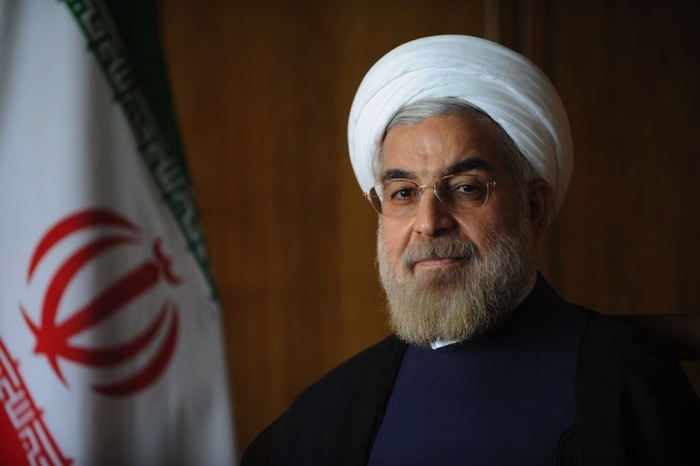This face could change our world and shape history.? Whether that happens or not, depends not only on him, but on you, and what you see when you see his face.? In part, what you see depends on whether or not you know to whom the face belongs, or if you simply see some religious guy – probably Muslim, or is that a Sikh turban?? But it’s actually bigger than that.
What do any of us see when we see anyone or anything unfamiliar to us, “whatever religion ‘that guy’ follows”?? That’s a question when looking at any unfamiliar face or trying to understand any new situation – history changing or otherwise.
“That guy”, by the way, is Hassan Rouhani, the President of The Islamic Republic of Iran, and what we see when we see him probably says as much about us, and our own ability to contribute to a more peaceful world, as it does about him.? Of course, it’s true that who he is, and the extent to which he represents a genuinely new and less hateful chapter in the history of Iran’s relationship with so much of the world, is a very important question.? But it’s also true that how we see him – what our gut reaction is to his image, says a lot about our own ability and willingness to contribute to that same process.
My own reaction is mixed.? I see the leader of a hard-edged theocracy which has a long track record of threatening the only two nations I have ever called home – the US and Israel.? I also see a religious scholar and close disciple of the Ayatollah Khomeini who has his own long track record of remarkable pragmatism and relative openness.
I actually want to see both, and as in most cases, hold onto the insight that comes from both my intuitive and my more carefully considered sense of who I see when I see Hassan Rouhani.
Who do you see when you see his face?? Why is that who you see?? How might your vision be helping or hindering to usher in a new era of better relations and enhanced security?

Listed for many years in Newsweek as one of America’s “50 Most Influential Rabbis” and recognized as one of our nation’s leading “Preachers and Teachers,” by Beliefnet.com, Rabbi Brad Hirschfield serves as the President of Clal–The National Jewish Center for Learning and Leadership, a training institute, think tank, and resource center nurturing religious and intellectual pluralism within the Jewish community, and the wider world, preparing people to meet the biggest challenges we face in our increasingly polarized world.
An ordained Orthodox rabbi who studied for his PhD and taught at The Jewish Theological Seminary, he has also taught the University of Pennsylvania, where he directs an ongoing seminar, and American Jewish University. Rabbi Brad regularly teaches and consults for the US Army and United States Department of Defense, religious organizations — Jewish and Christian — including United Seminary (Methodist), Yeshivat Chovevei Torah (Modern Orthodox) Luther Seminary (Lutheran), and The Jewish Theological Seminary (Conservative) — civic organizations including No Labels, Odyssey Impact, and The Aspen Institute, numerous Jewish Federations, and a variety of communal and family foundations.
Hirschfield is the author and editor of numerous books, including You Don’t Have To Be Wrong For Me To Be Right: Finding Faith Without Fanaticism, writes a column for Religion News Service, and appears regularly on TV and radio in outlets ranging from The Washington Post to Fox News Channel. He is also the founder of the Stand and See Fellowship, which brings hundreds of Christian religious leaders to Israel, preparing them to address the increasing polarization around Middle East issues — and really all currently polarizing issues at home and abroad — with six words, “It’s more complicated than we know.”

